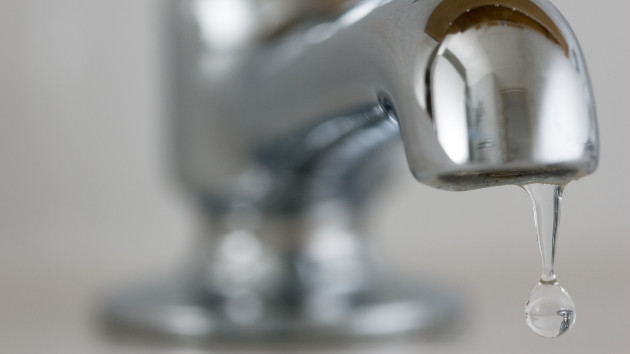(BALTIMORE) — Baltimore has become the latest major city to experience a water crisis involving contamination in the water supply.
City officials have been urging residents to boil tap water for at least one minute after E. coli was discovered in West Baltimore at one sampled location on Friday and another two locations on Saturday. More than 1,500 people were affected by the advisory, as well as several area schools.
Investigators are identifying construction sites that potentially contributed to the contamination, Baltimore Director of Department of Public Works Jason Mitchell told reporters during a press conference Monday, Baltimore ABC affiliate WMAR-TV reported. The health department is flushing the system, as well as performing leak detection and live checks in the area, and increasing chlorination levels, Mitchell said.
Engineers are inspecting the distribution system, treatment systems, pumping facilities and other infrastructure, city officials told reporters during a news conference on Tuesday, WMAR reported.
The boil water notice will remain in effect until the source of the E. coli is determined and the problem has been fixed, the Maryland Department of the Environment said.
There is no evidence so far that the contamination spread to the east or southeast sections of the city, officials said Tuesday after the results came in from another round of tests that were sampled on Monday.
The health department takes 360 samples from 90 locations throughout the city each month to identify potential issues with water quality.
The city began distributing water to impacted communities once the contamination was announced. More than 1,700 gallons of water were handed out on Monday alone, and the distribution continued into Tuesday, officials said.
Baltimore Mayor Brandon Scott told reporters Monday that the city is “taking this issue seriously.”
“We understand deeply the concerns of residents and we want to assure them that their health and well-being are our first priority,” Scott said.
Baltimore officials did not give a timeframe on when the water supply would be deemed safe.
Other major cities have been seeing water supplies contaminated in recent days.
In the East Village neighborhood of New York City, drinking water at the Jacob Riis Houses, a New York City Housing Authority Complex, was found to have dangerous levels of arsenic, ABC New York station WABC-TV reported.
Thousands of residents were forced to use water bottles and portable water stations throughout the holiday weekend after they were told not to drink or cook with the water from their taps, according to WABC.
The housing authority began testing the water weeks ago after receiving reports of cloudy water. Tests came back positive for arsenic on Friday, but there is no evidence that the arsenic levels are connected to the initial cloudy water reports, according to city officials.
The first positive samples came from two high-rise buildings, where the water goes into a tank on the roof after leaving the main line, said NYCHA Senior Vice President for Healthy Homes Daniel Greene. More samples have been taken from low-rise buildings as a precaution, Greene said.
The office of New York City Mayor Eric Adams advised residents to continue using bottled water until the test results for 100 additional locations come in. Residents are also being asked to help flush out the system in case the contamination is in the buildings’ pipes by turning faucets on and letting the water run for three hours, three floors at a time.
Jackson, Mississippi, is also facing another water crisis after river flooding compounded issues with water pressure at long-failing treatment systems.
Officials in Jackson announced last week that cooking and cleaning, firefighting, flushing toilets and bathing would be widely unavailable for the state capital’s 180,000 residents other than for critical outside aid.
The problems with the city’s water supplies persist more than a year after the city faced another water emergency when back-to-back winter storms wreaked havoc on the city’s water system.
By March 2021, thousands of residents had been without water for more than a week as members of the Mississippi National Guard trucked bottled water into the city.
Residents told ABC News they are fatigued over the “ongoing issue” that has been plaguing the O.B. Curtis Water Treatment Plant for years.
“I think our concern as citizens is even after all of this, after they put all the money into the water plant, will we have qualified staff to continue to run the plant?” said resident Velma Warner.
Copyright © 2022, ABC Audio. All rights reserved.












